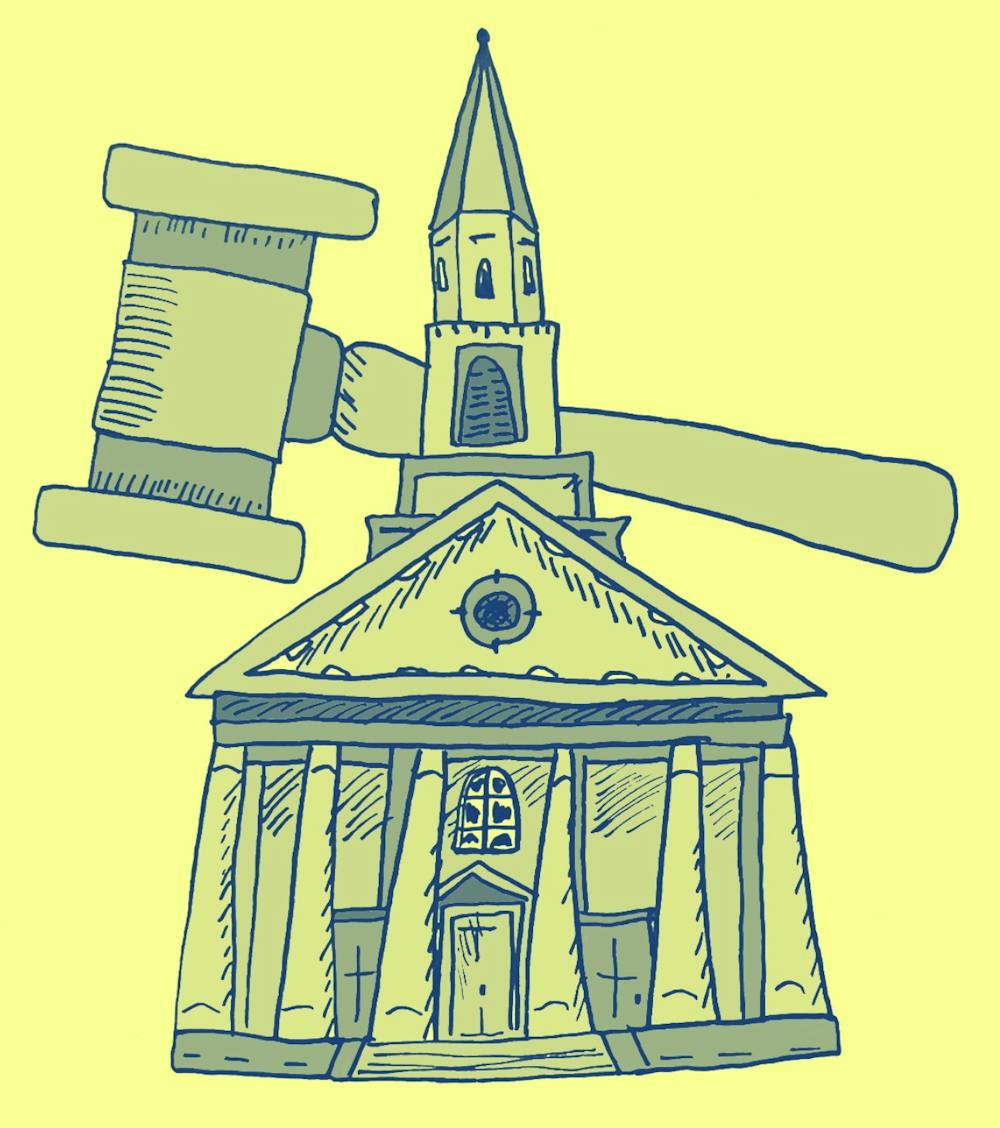Vermont Superior Court Judge Robert A. Mello ruled against the Mead estate on Oct. 3, 2024, deciding that it would not be entitled to restore the original name of the chapel or receive monetary compensation for the name’s removal. The lawsuit began 18 months ago when Jim Douglas ’72, former Vermont governor and Middlebury’s executive-in-residence, sued the college on behalf of the Mead family for removing the name of John Abner Mead from the Middlebury Chapel.
While most of the main issues have been decided, the court has allowed the litigation to continue in part to decide whether the original agreement was a gift or a contract. If it was a contract, then the court will allow proceedings to determine if “covenant of good faith and fair dealing” has been violated.
“The unjust enrichment claim has no merit. Because the transaction still could be determined to be a contract, the court cannot determine as a matter of law that there can be no claim on the covenant of good faith and fair dealing,” the court wrote.
The ruling also denied Middlebury’s renewed motion to dismiss on the grounds that it was now moot. Middlebury’s motion for summary judgment remains only granted in part, and not in full.
A spokesperson for the college shared that the ruling demonstrated the lack of evidence for the plaintiff’s arguments, adding the college’s legal team continue to work towards fully resolving the case.
“The Court's decision affirms that there were no viable legal bases for the primary goals of the Mead Estate in bringing this lawsuit (either returning to the original name of the Chapel or returning the gift funds),” the spokesperson wrote in an email to The Campus. “The College’s attorneys are evaluating the next steps to fully resolve the few remaining issues and move this case toward a close.”
As special administrator of the Estate of Governor John Mead, Douglas admitted that this ruling is not the intention the plaintiff side was hoping for.
“We were disappointed that the Court declined to compel the College to restore the Mead family name to the Chapel, concluding that a century is long enough; that seems quite arbitrary &, at the very least, a decision for a jury,” Douglas wrote in an email to The Campus.
Douglas said that the Mead estate believes that this decision of the court allows them to ask a jury to determine whether there was a contract between Mead and the college or if the sum of money used to build the chapel was a gift.
“We believe that it was a contract, as there were numerous requirements on both parties,” he wrote. “If we’re able to present that question to a jury, it would be logical to ask the panel whether the name should be restored.”
Douglas added that he believes the college should restore the name “Mead Memorial Chapel” regardless of the outcome of legal proceedings.
In terms of Governor Mead’s controversial actions — notably his farewell address to the Vermont legislature, which shared his support to pro-eugenics legislation — Douglas acknowledged that Mead’s ideas are unacceptable today but were mainstream and clearly embraced by Middlebury at his time a century ago.
“In fact, the College taught mandatory courses on eugenics topics for more than half a century,” he said. “It was a eugenics factory.”
Since the removal of Mead’s name from the chapel’s title, critics have expressed their discontent with the college’s lack of transparency when making the decision. Douglas shared his concern about the prevalence of political correctness in academia, which might prevent deep discussions on controversial topics such as eugenics in this case.
“What should disturb everyone at a liberal arts college is that [Mead] was punished not for anything he did, but for something he said,” Douglas wrote. “In theory, that’s the purpose of an institution of higher education: to expose students to views that are unpopular, even offensive.”
In an email to The Campus, the spokesperson for the college emphasized Middlebury’s continued commitment to free expression and open exchange.
“The college has and will remain committed to exercising the fundamental right of freedom of expression and open debate on our campus and welcomes all voices on this issue,” the college wrote.
The court will continue to weigh the narrowed scope of the Mead lawsuit in the coming months. The final outcome will depend on future appeals and rulings: Douglas has stated that the Mead estate will appeal the ruling to the Vermont Supreme Court and is waiting for permission to do so from the Vermont Superior Court.
Hugo Zhang '28 (he/him) is a News Editor.
Hugo previously served as an Online Editor. He intends to major in Economics and Geography. He enjoys cartography, traveling, and history. Last summer, he studied at Sciences Po Paris and traveled across Europe. He has also conducted research on ethnic minority policies, economic transformation, and urban planning in Northeastern China, also known as Manchuria.




